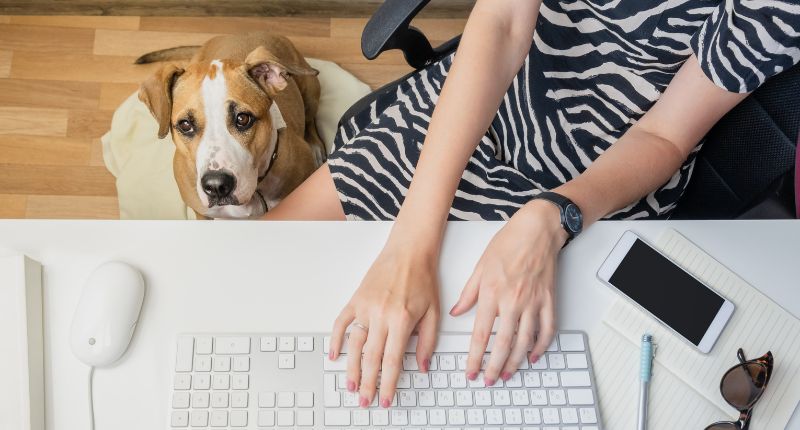
- Landlords and companies using unconventional strategies to lure staff to the office.
- Pet-friendly offices may have benefits and some drawbacks as well.
- Building owners are adding sport amenities in offices to attract tenants.
The post-COVID-19 rise in popularity of hybrid and remote working has seen office owners and tenants struggle to lure their workers back into the office.
Thus, landlords and companies have been turning to unconventional means to repopulate the workplace, such as allowing pets in office spaces, according to Ray White Commercial head of research, Vanessa Rader.
A contentious issue
Australia’s pet population is booming, with 68.7% of all households owning a pet, rising from 61% three years ago. Particularly, after spending substantial amounts of time with them during the pandemic, pet anxiety has also increased, a crucial hurdle preventing staff from returning to full-time work.
Pet ownership in Australia

Nevertheless, the issue of allowing pets in offices has been heavily debated. While pets may provide emotional and mental benefits for some, others may see them as a distraction. Having to accommodate workers with allergies and a fear of animals; pets may be seen as adding needless complexity to the workplace.
Interestingly, before the pandemic, several tenants already sought to allow pets in the office in their lease terms. Most of these were technology companies hoping to attract young, progressive individuals into their ranks through the emotional and welfare benefits of being close to a pet in the office.
Pet ownership in Australia is largely concentrated between the ages of 18 and 39, with 80% owning a pet. On the other hand, only 52% of baby boomers, also traditional office workers, owned pets.
Pets not the panacea for office woes
Post-pandemic, tenant enquiries on pet-friendly workplaces declined, although the demand for offices from pet-related businesses has been surging, with pet insurance companies and pet creatives riding on Australia’s large pet population.
Even though pets may be an exciting new way to incentivise workers to return to the office, it may inadvertently create bigger problems, like having to travel to work with the pet, or the time spent caring for the pet.
Other solutions used by building owners
Tenants have historically been responsible for making the workplace more vibrant. In many offices, ping pong and foosball tables have been a staple of communal areas, fostering more team bonding.
Lately, more building owners have actively taken steps to enhance the vibrancy of their offices. As the flight to quality trend rages on, occupiers are no longer satisfied with bog standard features like bike racks, end-of-trip facilities, or lobby cafes.
In Sydney, landlords have been using sporting facilities like basketball half-courts, virtual golf, and squash courts to improve the attractiveness of their buildings. Perhaps this trend may be the best way to elevate the office experience yet, providing various health and well-being benefits while facilitating fun, teambuilding interactions.
With over 13 million Australian adults actively participating in a sport and over 90% being interested in sports, sports offerings may soon be a fixture of CBDs across the nation.







